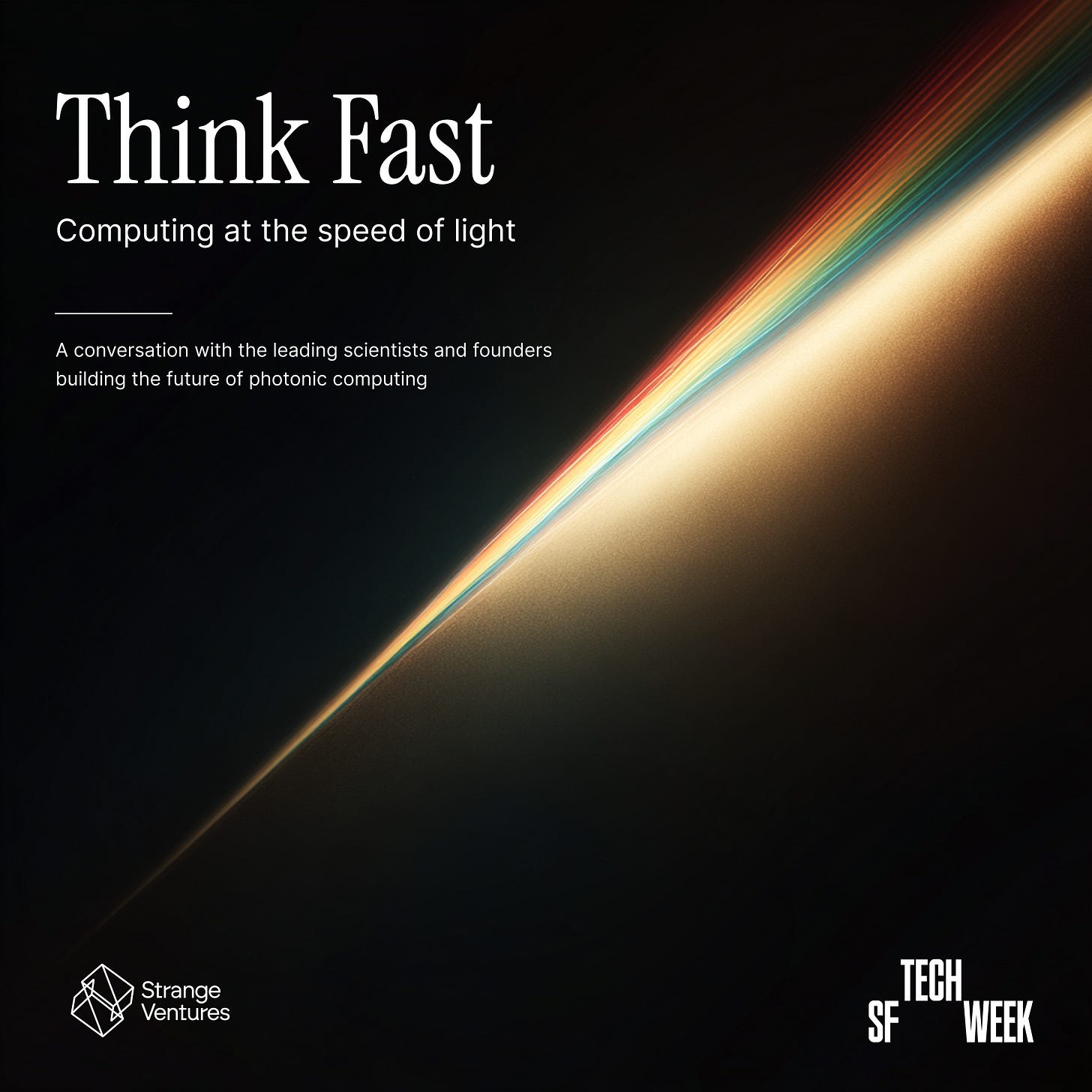[Weekly Review] The Next Power Play: Talent and Compute
What one visa policy and a $100B alliance reveal about the next era of power in Silicon Valley.
Field Notes
Two stories this week reveal how fast the ground under AI is shifting. One at the level of people, the other at the level of infrastructure. Together, they hint at how power in this new era might consolidate, and where the cracks will form.
A U.S. proposal to charge $100,000 for foreign tech workers to enter the country might seem like a narrow immigration tweak. It’s not. This policy could reshape Silicon Valley completely.
The cost is trivial for Big Tech, but fatal for the next generation of scrappy founders, garage labs, and speculative projects. The effect: capital stays in the U.S., but talent, experimentation, and serendipity scatter elsewhere like to Berlin, Bangalore, or Buenos Aires. Silicon Valley’s edge has always been its ability to attract unproven talent and let wild ideas collide cheaply. This policy risks choking that off.
As one second-order effect, I believe we will see more startup teams be distributed by default. Headquartered in the US to access capital markets, with core operations elsewhere.
[Read on] Here’s why I think this policy is detrimental to the Silicon Valley’s gravity of innovation.
OpenAI’s cost structure is brutal: every token it serves pays rent to both cloud providers and GPU vendors. The only way out is to go full-stack. To own the infrastructure, and streamline the stack into something profitable. But there’s a deeper, more existential reason why Nvidia is betting so big on OpenAI ($100 billion, to be exact): if Gemini (Google’s TPU-native model) reaches AGI or mass adoption first, Nvidia’s CUDA becomes obsolete. The world’s most advanced intelligence will speak (Google’s in-house chip) TPU’s language, not Nvidia’s, and the gravitational pull of the ecosystem will flip overnight.
[Read on] Detangling the Nvidia-OpenAI-Oracle partnerships and why this alliance matters.
Join us at SF Tech Week! We’re hosting a panel on the future of photonic computing with leading scientists and founders from PsiQuantum, Hartley Ultrafast, and more.
The Download
News that mattered this week
OpenAI is building five new Stargate data centers with Oracle and SoftBank: OpenAI announced plans to build five new AI data centers across the United States with partners Oracle and SoftBank through its Stargate project. The new data centers will bring Stargate’s planned capacity to seven gigawatts. Enough energy to power more than five million homes.
Google study shows AI writes code, but developers still don’t fully trust it: According to Google’s latest annual DORA: State of A.I.-assisted Software Development report, 90% of technology professionals now use AI in their workflows, representing a 14% jump from last year. Despite higher AI adoption, however, trust in the technology remains low. While most say AI makes them faster and more productive, only 24% say they trust it “a lot” or “a great deal.” Nearly a third admit they trust it “a little” or not at all.
Anthropic just dethroned OpenAI in enterprise usage: New Menlo Ventures data shows Claude capturing 32% of enterprise usage while ChatGPT dropped to 25%. Claude dominates code generation with 42% market share, more than double OpenAI’s 21%.
Product Launches
Google’s Mixboard is an AI moodboard builder: Google is launching a new AI concepting tool that lets you create moodboards to explore design ideas. Google says that users can edit boards with natural language prompts to adjust or combine images, or reference uploaded images to generate new visuals.
Perplexity’s new AI agent wants to replace your email habits for $200 per month: Perplexity AI launched an autonomous email assistant that can manage inboxes, draft personalized responses and automatically schedule meetings. The Email Assistant works within Gmail and Outlook to categorize messages, compose replies that match users’ writing styles, and handle the back-and-forth of meeting coordination without human intervention.
China’s Alibaba releases open source Qwen3-Omni AI model accepting text, audio, image and video: Chinese search giant Alibaba’s Qwen team of AI researchers debuted what may be its most impressive model yet: Qwen3-Omni, an open source LLM that the company bills as the first “natively end-to-end omni-modal AI unifying text, image, audio & video in one model.”
Figma made its design tools more accessible to AI agents: Figma’s Model Context Protocol (MCP) server has now been expanded to support the design platform’s AI prompt-to-app coding tool, Figma Make. This means the MCP server can show AI models and agents exactly how an app was built in Figma Make, so it can be accurately recreated instead of guessing based on the visual design.



